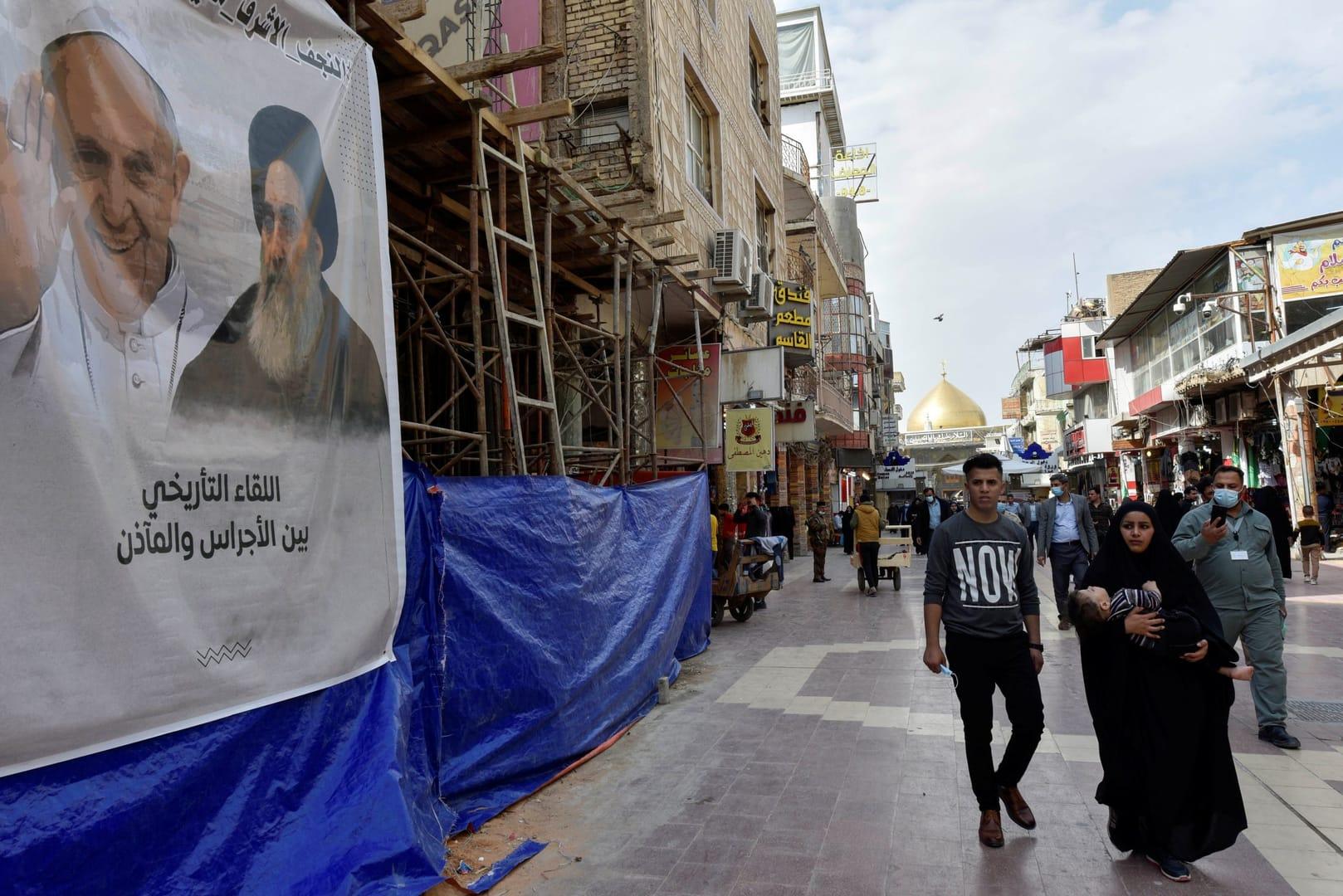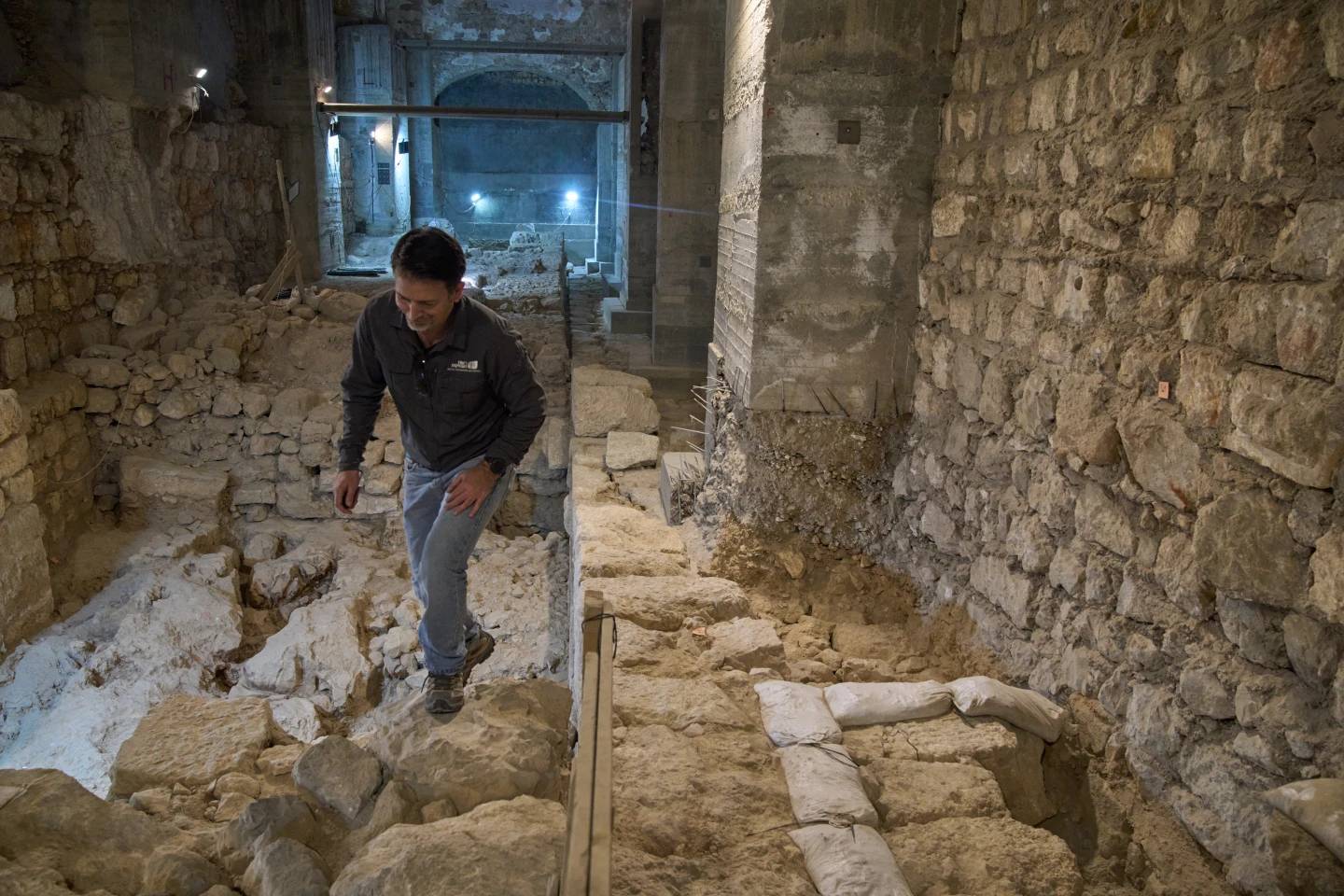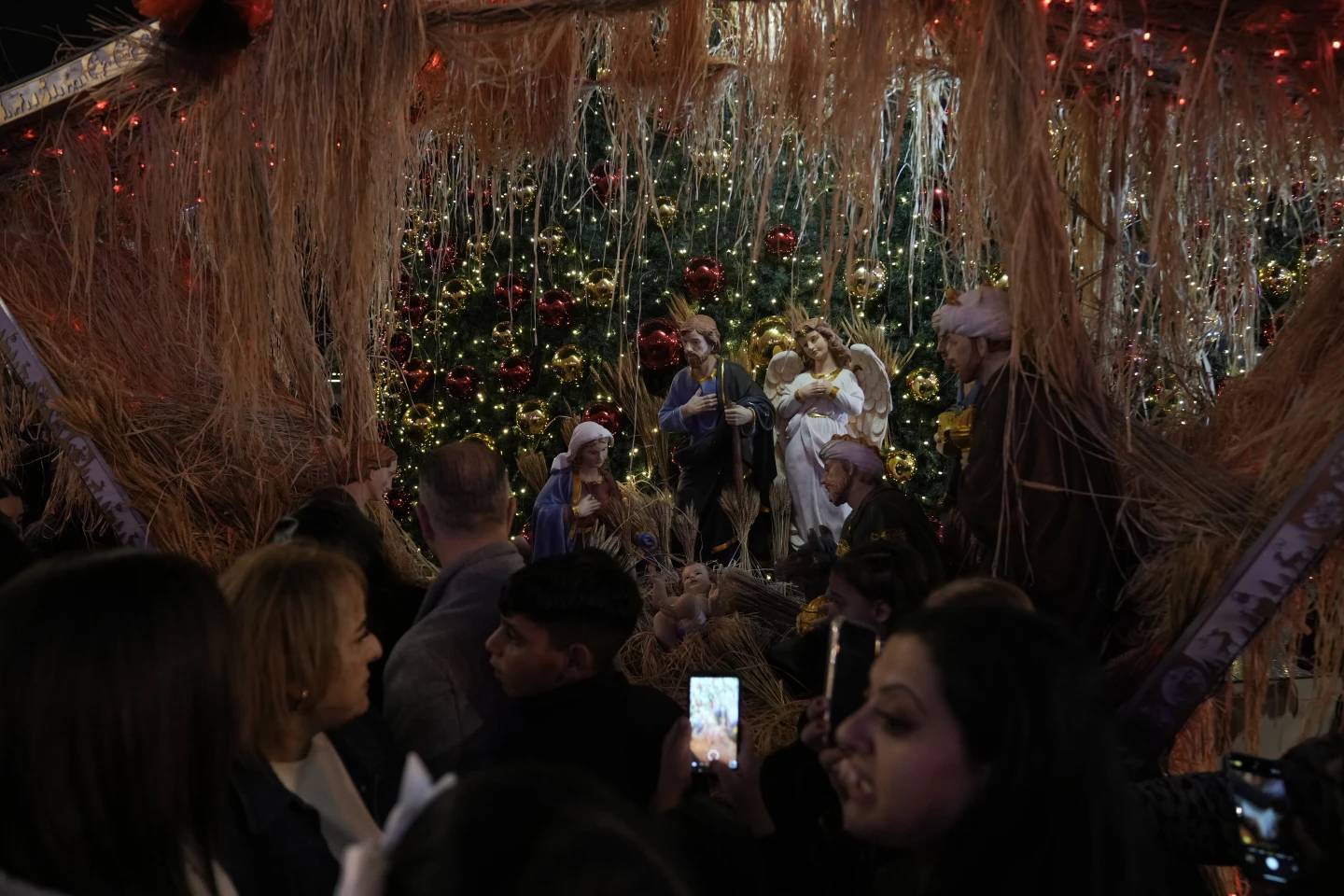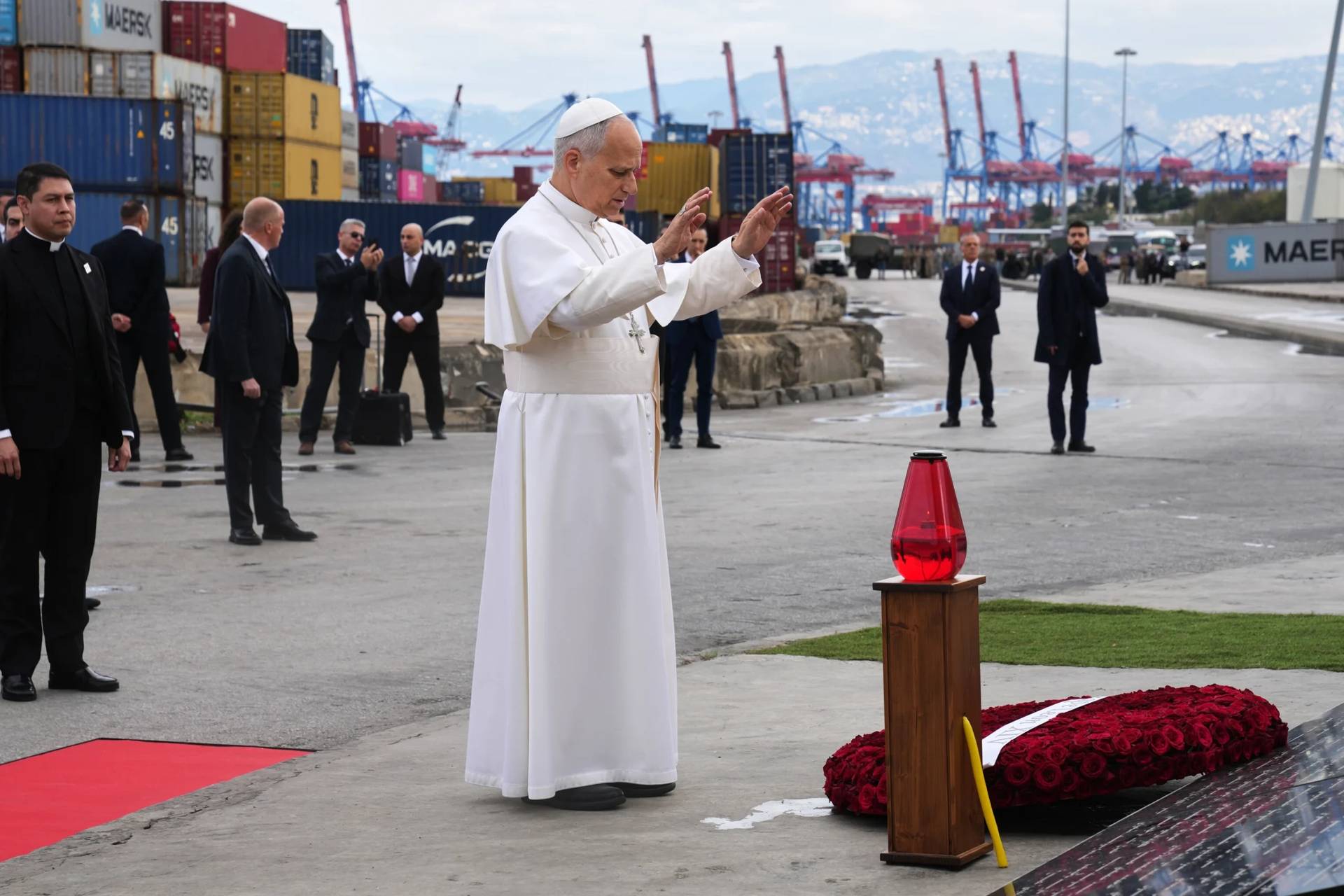NEW YORK – Ever since Iraq’s liberation from the Islamic State group in 2017, Nadine Maenza has noticed the world continues to pay less and less attention to the plight of the country’s Christians and other religious minorities.
Now, she hopes that Pope Francis’s presence can “shine a light” on the situation for the whole world, as the pontiff embarks on the first papal trip to the country on Friday.
“For them to make a future for themselves would include the international community continuing to help them rebuild, but also having a vibrant economy so their families can make a living, having security, providing their own security and having a say in their own governance,” said Maenza, a member of the United States Commission on International Religious Freedom.
“Perhaps, this will be a moment where the international community can look again at Iraq as the pope talks about the dignity of the Christians that live there and other religious minorities and how they have a right to be in their homeland,” she told Crux.
Maenza last visited the Nineveh Plains – the region in Iraq with Mosul and Qaraqosh, the largest Christian town in Iraq – in November of 2019. She again met with Christians from the region this past October and November as part of an approximate month-long trip to Erbil, the capital of the Kurdistan Region in Iraq, and Northeastern Syria.
One thing Maenza remembers from her trip and correspondence with the Christians is the presence of militia groups in and around the Nineveh Plains. She personally had to go through 11 checkpoints while there and has been told there are even more now. It’s something she said has “created an impossible situation for Christians and other religious minorities to have the kind of freedom and security that they deserve.”
She also notes the Shia militia groups were created by Grand Ayatollah Ali al-Sistani, the top cleric in Shia Islam, who Francis will meet with on the trip.
“Certainly, the militias are not leaving without a voice (al-Sistani) playing a role in that. So, he can certainly help to lead an effort to say it’s time to step aside in the Nineveh Plains and in Sinjar and let the local people provide their own security,” Maenza said.
That’s not to say something of the magnitude will happen after one meeting between Francis and al-Sistani. However, Maenza said someone like al-Sistani with influence in Iraq can understand that the country has to change, and “this could be a pivotal moment for him speaking to that.”
“The pope coming and meeting with a Shia leader and having interfaith discussions I think is a great way forward to make clear to the government that all religions, all ethnicities should matter,” she added. “And also, to hopefully open up all of the lines of communications among these leaders to be interacting, to be talking about how they can all go together in peace.”
Today, the number of Christians in Iraq is estimated to be in the 300,000-500,000 range, compared to about 1.5 million that lived in the country in 2003, before the United States invasion that toppled the Saddam Hussein government.
Many of the Christians displaced because of the Islamic State group still have not returned. Maenza said it varies based on where you are, it still “looks like ISIS was there in a lot of places” in the Nineveh Plain due to the rubble and destruction.
She said there’s even houses that have booby-traps that have yet to be disarmed.
The threat of terrorist groups still looms in Iraq to this day. And the ongoing COVID-19 pandemic poses another safety threat. But, Maenza said she’s never felt at risk in Iraq and she isn’t worried about the pope’s safety either.
“The U.S. government, the Iraqi government, they have a lot of intelligence, a lot of ability to keep him safe,” she said.
Maenza said the fact that the pope is coming to Iraq despite the risk “raises for Christians how important they must be to him for him to come, and to all of the people in Iraq that the Christians mean a lot to the pope.”
Follow John Lavenburg on Twitter: @johnlavenburg















